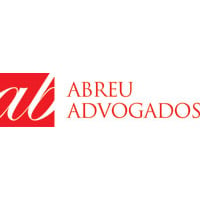

Partner, head of international arbitration | Mishcon de Reya






Karel Daele
Partner, head of international arbitration | Mishcon de Reya
Number of years practice: 21
Principal practice areas: Investor-state and
commercial arbitration
Languages spoken: English, French and Dutch
What is the geographical focus of your practice in Africa?
Pan-African practice.
Please describe the most important matters you have worked on in the African market in the last two years, including your role and the significance of the matter (if any) to the development of business and law.
I am the lead counsel acting for the claimant in an ad hoc arbitration against the Government of the DR Congo in relation to the expropriation by the Government of my client’s 20 year concession to construct, finance and operate the Kasumbalesa border facilities at the border between the DR Congo and Zambia. The Kasumbalesa border post is one of the most important on the African continent, through which 80% of the DR Congo’s exports of minerals and 50% of imports of goods crosses, the amount in dispute exceeds US$100m and they involve complex legal questions. This is politically very sensitive because it involves key individuals and different levels of the DR Congo Government.
I also act as lead counsel for the claimant in an investor-state arbitration against the Republic of Guinea in relation to the expropriation by the Government of BSGR’s mining rights in the country. The arbitration is conducted under the Arbitration Rules of the International Centre for the Settlement of Investment Disputes, which is an arm of the World Bank in Washington. This is probably the most important Africa dispute of the last 10 years because the expropriated mining rights relate to the most valuable untapped iron reserves in the world, the Simandou mountain. In addition to widespread media coverage and the amount in dispute exceeding US$5bn, corruption allegations in this case implicate the two biggest mining companies in the world and the involvement of high profile individuals such as George Soros, former UK prime minister Tony Blair, former South African prime minister Jacob Zuma and current Guinean president Alpha Condé. I am for the claimant in the case and also involved in parallel criminal and civil proceedings in six jurisdictions (USA, UK, Israel, France, Guinea and Switzerland) that relate to this case. This matter is ongoing.
Thirdly, I act for the respondent in a commercial arbitration conducted under the Arbitration Rules of the London Court of International Arbitration (LCIA) regarding a dispute between Vale and BSGR over a failed mining project in Guinea. The respondent is being accused by its former joint venture partner to have fraudulently induced it to invest billions into the Simandou mine by concealing that it had acquired the mining rights by corruption and bribery. The case relates to the anti-corruption agenda in Africa and in the natural resources industry, and involves one of the biggest Brazilian companies, Vale, against the background of widespread corruption investigations into the entire Brazilian political and business community. The amount in dispute exceeds US$1.5bn and in the course of the arbitration, we successfully removed on the world’s leading arbitrators, Judge Charles Brower, from the case on the ground of an appearance of bias against my client. As a further consequence of our challenge to the arbitrators, the LCIA modified its institutional rules on the use of tribunal secretaries.
Lastly, we are leading counsel for the respondents in an ongoing commercial arbitration under the LCIA, in connection with a joint development agreement in connection with a 350MW power generation plant in Ivory Coast. The arbitration is governed by English law with a London seat and gives rise to complex quantification issues. This matter is significant [not only] because the amount in dispute exceeds US$50m, but because it has a significant bearing on power generation in Ivory Coast, a jurisdiction where the energy supply is currently unpredictable. The power plant in dispute would generate over a third of the national power supply. The ongoing LCIA arbitration was preceded by an application by the Claimant to the English High Court in London, seeking interim relief in support of the arbitration which gave rise to important and topical issues regarding the appropriate forum for the granting of injunctive remedies in the context of arbitration.
What differentiates your practice from that of other private practice lawyers?
Language skills; being trilingual, I work in both French-speaking and English-speaking Africa. Most UK-based lawyers do not have French-speaking capabilities, and cannot accept disputes that will be conducted in French or in which the majority of the documents are in French.
Being qualified in both Belgium and England, I work in both common law and civil law countries in Africa. Most UK-based lawyers are not qualified in civil law and cannot accept disputes that are governed by laws that belong to the civil law family.
I worked and lived in Africa for six years, also both my family and my wife’s family have had businesses in Africa for over 20 years. I, therefore, have a very good personal understanding of the reality of doing business in Africa and of the African culture.
Because I have a strong practice in both investor-state and commercial arbitration, I can act for clients both in disputes with other commercial companies and in disputes against African states.
I was a litigator in Brussels, Belgium for over 10 years before I moved into arbitration. Because there is no distinction in Belgium between solicitors and barristers, I am trained to do my own advocacy, so our overall cost is generally lower than those of other firms. I also tend to use a relatively small team. Clients appreciate this, for example because of the confidentiality and the sensitivity of doing business in Africa.
Why has Africa been a particularly strong focus for you?
Because of my skills and background I realised early that I had a competitive advantage. In addition, when I decided in 2006 to specialise in Africa disputes, none of the major UK or US law firms had a serious interest in Africa. I have therefore been able to gain a first-mover advantage that I am trying to preserve.
In a very competitive and crowded market such as the international arbitration market, one has to distinguish oneself, either by regional or sectorial expertise or a combination of both. I understood the potential of African disputes over 10 years ago and have been able to capitalise on that.
What changes have you seen in the appetite for Africa-based ventures and investments over the last five years?
There is obviously more interest in renewable energy type of deals, but in general the main areas of investment are still mining, oil and gas, large infrastructure projects and public utilities. There is also more interest in e-business related investments, especially in the financial services sector. Chinese investment remains strong, in particular in relation to its One Road, One Belt initiative.
Are there any aspects of the African legal market that you would like to see change?
First of all, increases in the quality and independence of the national judges. Secondly, the ratification of the billed treaties that African states have signed to promote foreign investment. Finally, a better access to African case law.
What megatrends do you think will shape the African market over the coming five years? How (if at all) will these trends affect your practice?
Continuing investment from China but also from other players such as the EU, US, Japan and Russia in multi-billion projects. With a demographic explosion, Africa is still very much in need of foreign investment because the African states neither have the resources, nor the expertise to provide for these projects themselves. With investments increasing, the risk of disputes between investors and states remains high.
Too many states have relied on the international financial markets to fix their monetary deficits. Defaults are likely to occur, giving raise to disputes in relation to financial products and sovereign debt.
Resource nationalism and instability are on the rise – including recent examples in South Africa and Tanzania – again increasing the risk of disputes.